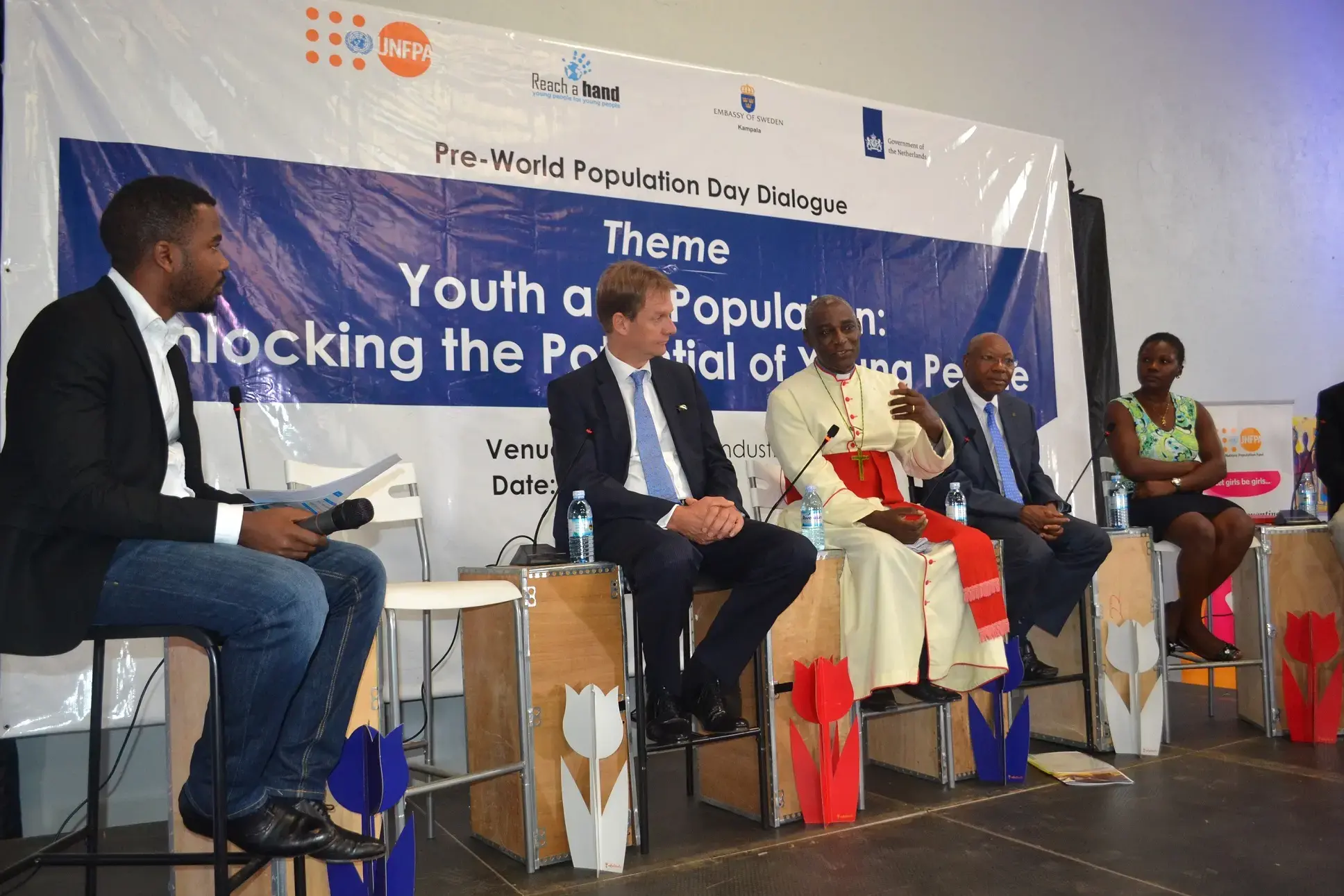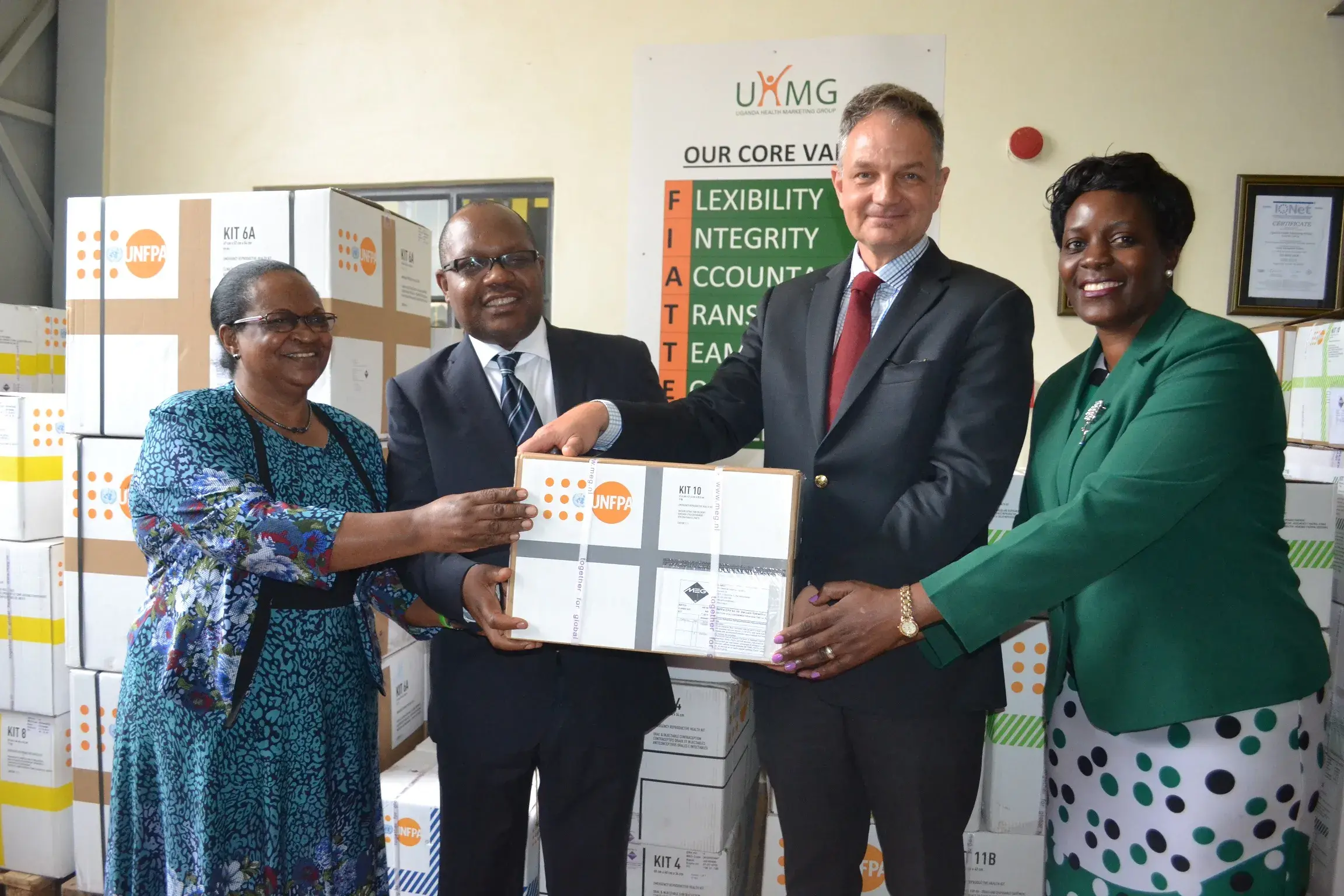In 2016, Noel Aryanyijuka was a student of biomedical engineering at Makerere University. As part of her internship, Noel and two of her fellow interns were tasked to identify health challenges affecting people in Mbarara district, western Uganda. One of the greatest challenges, they discovered, was around menstruation; girls and women in the community could not afford sanitary pads and were using old clothes and toilet paper during their menses.
Noel’s passion had always been to use her knowledge to develop affordable technologies to help improve the health of people in her community. Meeting these women and girls was that opportunity.
“Together with my team we decided ‘We can make a difference. We can make something affordable for these women and girls’ because we realized that girls were dropping out of school,” she says.
Managing menstruation, a challenge for Ugandan girls
In Uganda, menstruation continues to be shrouded in taboos, myths, and misconceptions, with many girls and women struggling with limited access to hygienic menstrual health products. A study by the Netherlands Development Organization (SNV) shows that about 50 percent of girls in Uganda report missing one to three days of primary school per month because of menstruation. Determined to make this right, Noelle teamed up with Suzan Mbabazi, Sam Kazibwe, Lydia Asiimwe and Shakira Namatovu to address this challenge.
Together, they came up with the idea of developing the Eco Smart Pad, a unique sanitary pad, made out of recycled sugar cane residue. “The name EcoSmart was meant to be representative of what we set out to achieve: ‘Eco’ to represent friendliness to the environment and to the user and ‘Smart’ to inspire young women and girls that they were brilliant and beautiful,” Noel, who is the Chief Executive Officer of EcoSmart explains.
With that in mind, the team got to work. They tested and sampled various plant materials including sugarcane residue, maize and sorghum. The idea was to identify low-cost, biodegradable and absorbent material that could substitute cotton used in commercially produced pads. The team zeroed in on sugarcane residue.
UNFPA’s Innovations Accelerator gives Eco Smart a start
In 2017, Noel and her colleagues signed up for UNFPA’s Up Accelerate initiative, whose aim was to explore new ways to tackle pressing sexual and reproductive health challenges in Uganda, while promoting social entrepreneurship among young people.
“We had created what I would call an ugly prototype. We were hoping to get funding to create a viable product,” she says of their decision to apply for the UP Accelerate initiative.
Under the Up Accelerate programme, Noel and her colleagues received mentorship and business training, and were among seven start-ups selected to receive seed funding of $10,000.
With the seed funding from Up Accelerate, Noel and her team were able to formally incorporate Eco Smart Pads as a company. They also conducted needs assessments in Mubende district and Nakivale Refugee Camp to better understand menstrual needs of women and girls, and worked with Uganda Industrial Research Institute to refine and test their prototype.
Building partnerships and expanding
As part of its efforts to support innovation among young people, UNFPA linked Noel with Kao Corporation, that was interested in empowering Ugandan youth. Eco Smart received a 20,000USD (shs 74,000,000) grant from Kao to expand production capacity and refine the pads to make them more absorbent. In addition, the Eco Smart team also receives technical support and mentorship from UNFPA to manage the grant.
“We are proud to work with a vibrant generation of young Ugandans like Noel who are seeking to reinvent the society they live in. At UNFPA we accompany them on their journey of exploration and innovation, supporting them to create the future that they want,” says UNFPA Representative Mr. Alain Sibenaler.
“It started out as simply being able to create a product for women and girls. Along this journey, I have intentionally become more passionate about empowering women. With my engineering background, I am redirecting my efforts to healthcare innovation; engaging with fellow innovators to design products to improve health care outcomes,” Noel says of the boost that the support from UNFPA and KAO has given her.
Looking ahead
Noel and her team now intend to reach 1,000 girls with the pads within the first year of production, after which they hope to cover all of Mbarara district. The pads will be provided at about one third of the cost of commercial brands. A pack of six pads, for instance will cost shs 1,000 ($0.3) and shs 2,000 (0.5$) for a pack of 12.
In addition to increasing access to sanitary pads, the team at Eco Smart is working to address other challenges around menstruation. They conduct hygiene research and trainings, educating girls in schools in Mbarara on how to keep clean during their periods, as well as safe disposal of sanitary pads. Noel and her team have also developed Break the Silence Uganda – a guide to using EcoSmart pads that contains information on Menstrual Health Management that they distribute to girls in schools.
“I want to see a new generation where there is no shame clouding menstruation. It is very natural and no one should be ashamed of it. We want to support young women to be confident and happy about menstruation because it is a normal process,” she concludes.
By Martha Songa and Anitah Nalwoga



